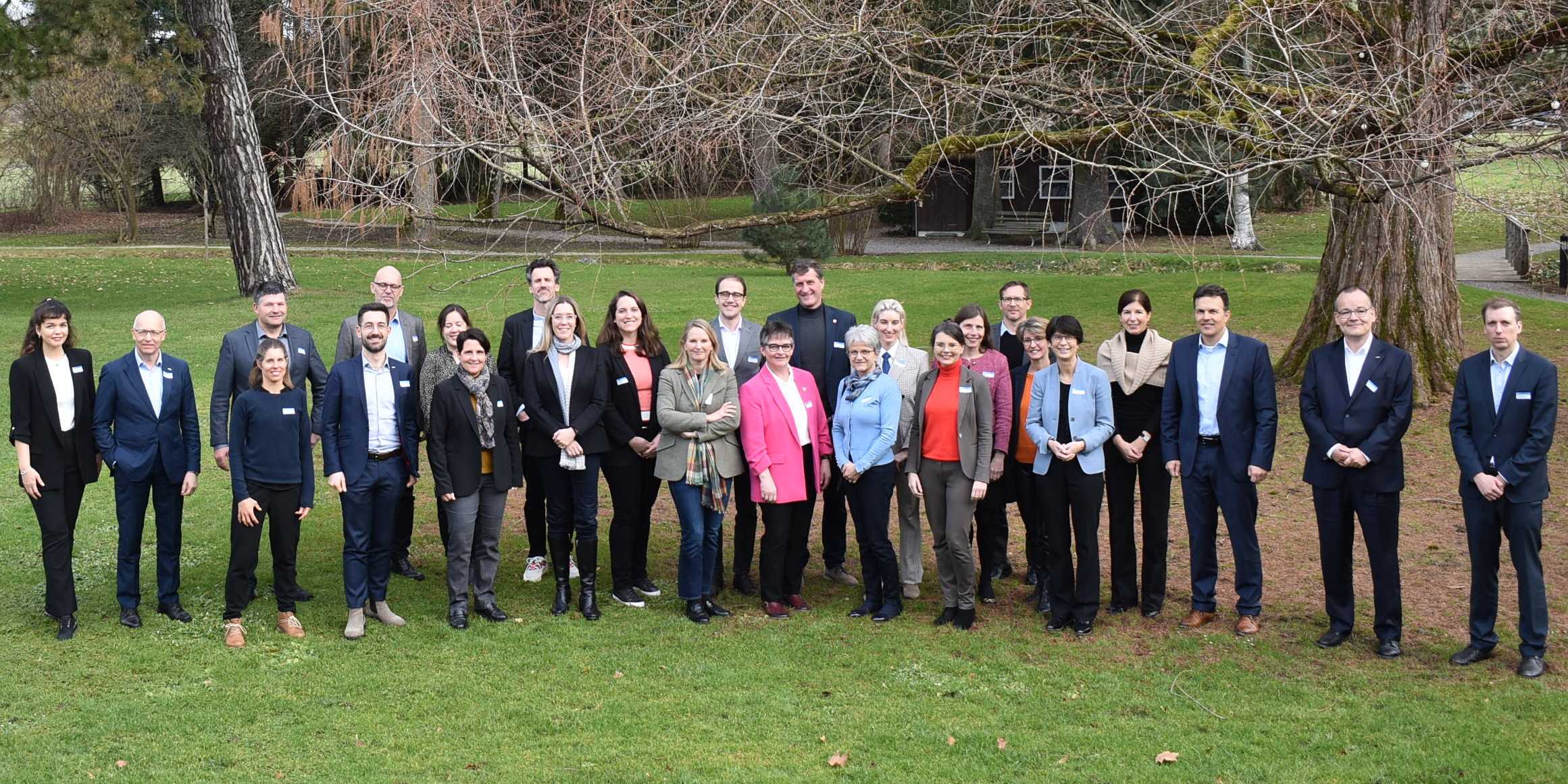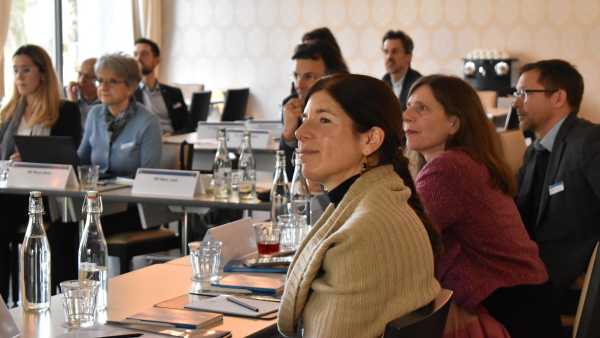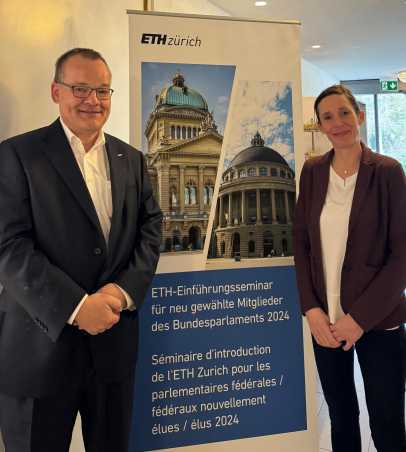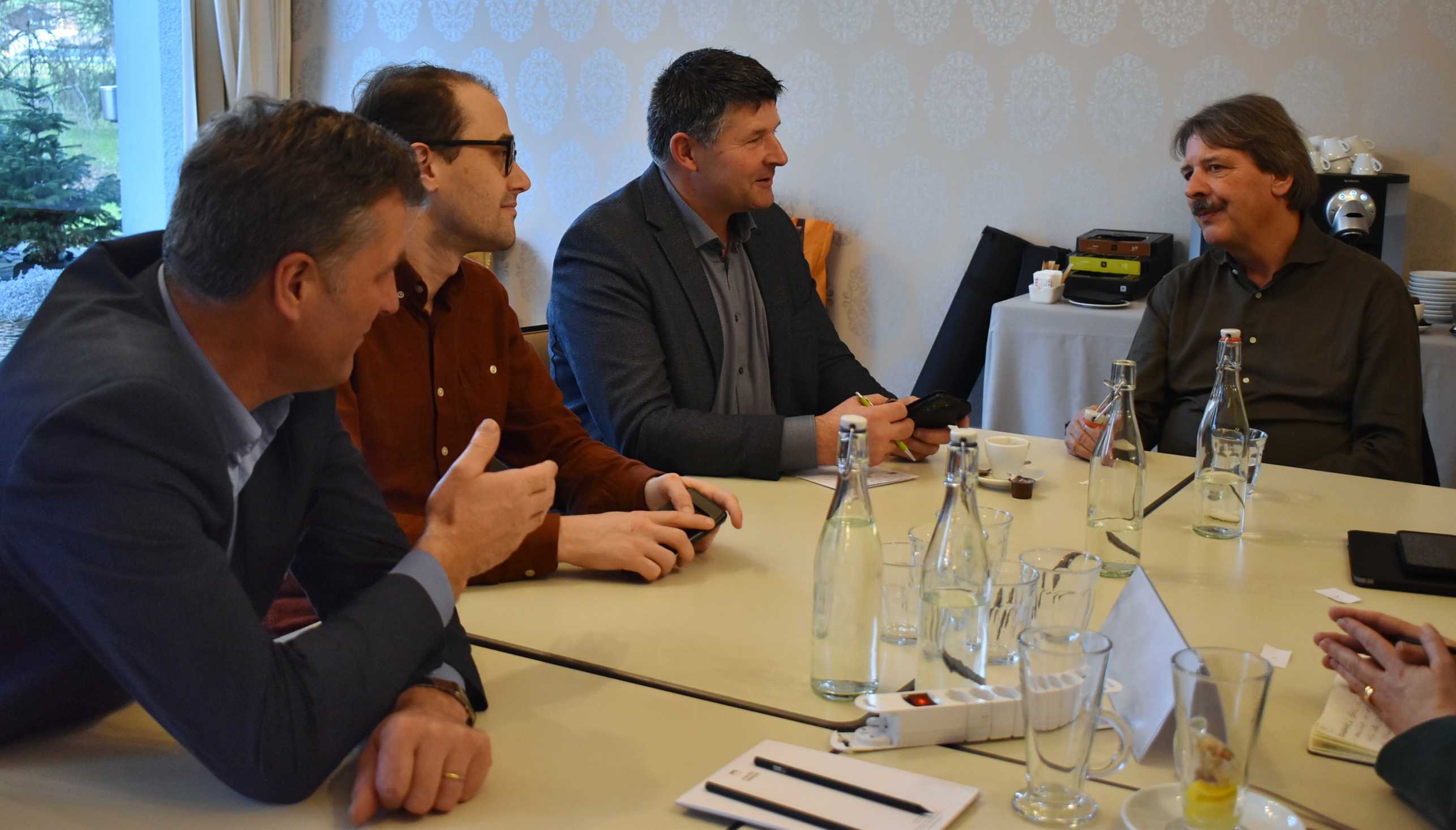Clear division of roles between science and policy
Security policy was just one of the items on the agenda, which also featured ten further topics of major significance for the parliamentary commissions. These included migration and finance policy, energy and climate policy, future mobility and the structure of the Swiss economy. Rüegsegger, from the canton of Bern, was particularly impressed by the thematic breadth of the two-day seminar. “These lectures are a good way to get up to speed with key topics. They give me the information I need for potential parliamentary motions,” he says. That view was shared by many of the other attendees.
The SVP parliamentarian also appreciates having direct contact with leading experts. Even in the coffee breaks, participants get the chance to chat frankly to the lecturers about current political issues. This helps establish trust: “Even once the seminar ends, I could see myself getting in touch with one of the experts if I have a question,” Rüegsegger says. The Centre party’s Chappuis is equally impressed: “All the lecturers made a clear distinction between science and policy – and that makes them credible partners,” she says.
Perich identifies this as one of the event’s main goals: “The idea is for scientists to support politicians in making decisions – not to make the decisions for them. That’s why we’re keen to start a dialogue between parliamentarians and researchers; the focus is very much on breaking down inhibitions, building mutual trust and ensuring a clear division of roles,” he says.
Scientific answers to societal challenges
Judging by the praise they received after giving their presentations, the experts certainly seem to have done a good job. Schläfli, from the canton of Thurgau, is one of those who gave positive feedback. As a member of the Political Institution Committees, she deals with migration-policy issues – and she was particularly interested in the lecture by Dominik Hangartner.
In his talk, Hangartner – an ETH professor and faculty co-director of the Immigration Policy Lab – described a “refugee placement algorithm” that can help authorities send refugees to places where they have a better chance of finding work. “Right now, we’re very limited in what we can do to manage immigration, so I was pleased to see him focus on an evidence-based integration strategy. Debates on migration policy often get very emotional, so this approach might help,” Schläfli says.
Opportunities to learn from experienced politicians
As well as channelling the knowledge gained from the seminar into their parliamentary groups, the participants were also able to build personal relationships across political lines in a relaxed environment. Over the course of the two days, there were plenty of frank and friendly discussions between the newly elected parliamentarians. SVP politician Rüegsegger says the benefits are clear: “Getting to know colleagues from other parties makes it easier for us to work together in parliament. We might not share the same political views, but we’ll still keep in touch.”






Comments
No comments yet